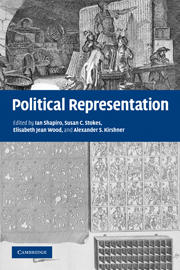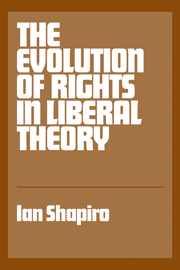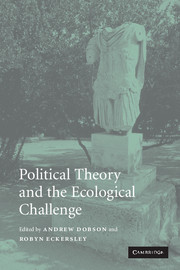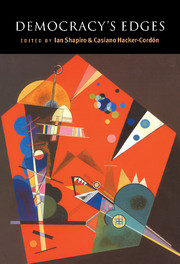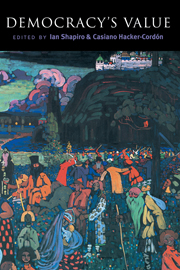Political Representation
Political representation lies at the core of modern politics. Democracies, with their vast numbers of citizens, could not operate without representative institutions. Yet relations between the democratic ideal and the everyday practice of political representation have never been well defined and remain the subject of vigorous debate among historians, political theorists, lawyers, and citizens. In this volume, an eminent group of scholars move forward the debates about political representation on a number of fronts. Drawing on insights from political science, history, political theory, economics, and anthropology, the authors provide much-needed clarity to some of the most vexing questions about political representation. They also reveal new and enlightening perspectives on this fundamental political practice. Topics discussed include representation before democracy, political parties, minorities, electoral competition, and ideology. This volume is essential reading for anyone interested in the ideal and the reality of political representation.
- An invaluable guide for scholars and students, featuring cutting-edge research on the history, value, limits and function of political representation
- The first book to bring studies of political representation from the perspectives of political science, political theory, economics, history, and anthropology together in one, intellectually-coherent volume
- Employs a variety of methods including archival research, historical and anthropological analysis, experimental research, formal modelling, statistical analysis, and conceptual theorizing
Reviews & endorsements
“Crossing boundaries of history, political thought, analytical reason, and empirical inquiry, a superb group of scholars powerfully illuminates the place of individual and group representation within modern democracies. Anyone interested in such fundamental subjects as elections and legislatures, mass opinion and elite leadership, or public deliberation and private interest, should attend this rich harvest.”
Ira Katznelson, Ruggles Professor of Political Science and History, Columbia University
“An excellent collection on the cutting edge of one of the most important topics in democratic theory.”
Jane Mansbridge, Harvard University
Product details
February 2010Paperback
9780521128650
380 pages
228 × 152 × 15 mm
0.61kg
12 tables
Available
Table of Contents
- Preface
- Editors' introduction Ian Shapiro, Susan C. Stokes, Elisabeth Jean Wood and Alexander S. Kirshner
- Part I. Representation before Representative Democracy:
- 1. Hobbes's theory of representation: anti-democratic or proto-democratic? David Runciman
- 2. Participation and representation before democracy: petitions and addresses in pre-modern Britain Mark Knights
- Part II. Theories of Political Representation:
- 3. Varieties of public representation Phillip Pettit
- 4. Representative government and popular sovereignty Bryan Garsten
- 5. Making interest: on representation and democratic legitimacy Clarissa Rile Hayward
- Part III. Representation and Inherited Injustice:
- 6. Critical liberalism Courtney Jung
- 7. Settlers and natives in North America Mahmood Mamdani
- Part IV. What Role for Representative Quotas?:
- 8. Perverse consequences? The impact of quotas for women on democratisation in Africa Shireen Hassim
- 9. On quotas and qualifications for office Andrew Rehfeld
- Part V. Preferences, Persuasion, and Democratic Representation:
- 10. Electoral representation and the aristocratic thesis John Ferejohn and Frances Rosenbluth
- 11. Why does the Republican party win half the votes? John E. Roemer
- 12. The impact of electoral debate on public opinions: an experimental investigation of the 2005 New York City mayoral election Sendhil Mullainathan, Ebonya Washington and Julia R. Azari
- 13. Swing voters, core voters and distributive politics Gary W. Cox.

